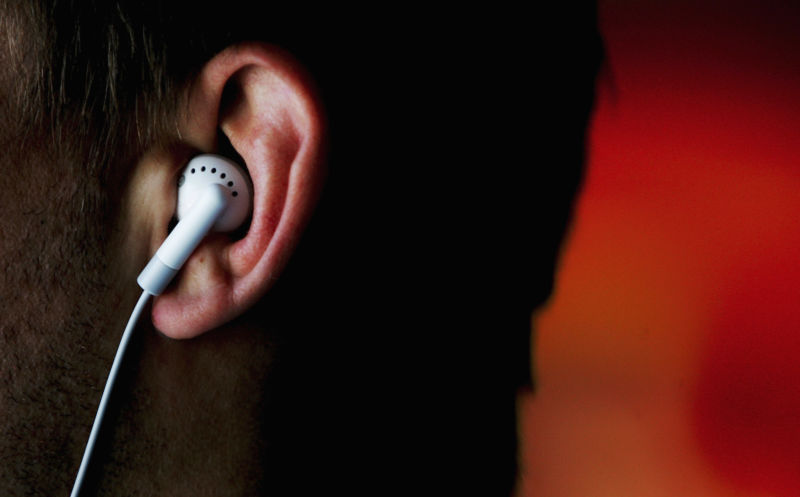
For the last decade, the Congressional debate over copyright law has been in a stalemate. Content companies have pushed for stronger protections, but their efforts have been stopped by a coalition of technology companies and digital rights groups.
But on Tuesday, we saw a rare moment of bipartisan and trans-industry harmony on copyright law, as the Senate unanimously passed the Music Modernization Act, a bill that creates a streamlined process for online services to license music and federalizes America's bizarre patchwork of state laws governing music recorded before 1972. That will mean effectively shortening the term of protection of older music published between 1923 and 1954—under current law, these songs may not fall into the public domain until 2067.
The bill managed to get the support of several groups that are normally at each others' throats: music publishers, record labels, songwriters, major technology companies, and digital rights groups.
The bill isn't perfect, but Public Knowledge—a digital rights group that usually opposes legislation sponsored by big content companies—gave the bill its endorsement, describing it as a "significant step forward for music consumers and fans."
The Senate must now negotiate with the House, which passed its own version of the legislation earlier this year. Public Knowledge was not a fan of that legislation because it keeps pre-1972 sound recordings out of the public domain for much longer. The big question now is whether the final version of the bill will look more like the consumer-friendly Senate version or the more industry-friendly House legislation.
A modern system for paying songwriters
US law provides two different types of copyright protection that apply when someone streams a song online. There's protection for the composer or songwriter, and there's a separate copyright for the music recording. Services like Pandora and Spotify typically need licenses for both types of rights in order to stream a song online.
Right now, the system for licensing the songwriters' copyright (known as "mechanical rights" for historical reasons) is a mess. Streaming services have had trouble identifying the owners of music rights, which has led to songwriters not getting paid and streaming services periodically getting sued for non-payment.
The Music Modernization Act aims to establish a modern system for licensing mechanical rights. It creates a new national database that will aim to cover all copyrighted music in the United States. If all goes according to plan, this new organization will offer streaming services "one stop shopping" for getting songwriters' licenses for all the songs they want to stream, with the database helping to get the funds to the appropriate songwriters and music publishers.
This would make the licensing of mechanical rights more like the system used for licensing yet another music-related copyright: the right to perform music publicly. If you own a concert hall or other venue where music is played publicly, you sign licensing agreements with three national organizations—ASCAP, BMI, and SESAC—which together have arrangements with the vast majority of the nation's music publishers.
That gets venues a blanket license to play any music they want to. It's the job of ASCAP, BMI, and SESAC to figure out which music gets performed most often and divvy up the revenue accordingly. Companies that stream music online would like to have a similar arrangement, and the Music Modernization Act aims to give it to them.
Federalizing pre-1972 music recordings
The legislation also changes how copyright law treats sound recordings made prior to 1972. Prior to 1972, the composer of a song could get copyright protection, but a recording artist couldn't get copyright protection at all. Instead, song recordings were covered by a patchwork of state-level laws, some of which gave artists copyright-like protection, and others did not. Under existing federal law, these state-level laws will eventually be preempted but not until 2067.
When the House passed its version of the Music Modernization Act earlier this year, digital rights groups Public Knowledge and the Electronic Frontier Foundation opposed it—primarily because they didn't like how the legislation dealt with these pre-1972 recordings. The bill would have extended full copyright-like protection to these works—without changing that 2067 expiration date. That means a song recorded in 1927 would effectively get 140 years of protection, vastly longer than the 95 years current law gives to books, movies, and other works published around the same time.
When the agreement reached the Senate, Sen. Ron Wyden (D-Ore.) pushed for changes to this portion of the legislation—and he made significant progress. According to Public Knowledge's Ryan Clough, works published before 1923 would expire three years after the legislation was passed. Works published between 1923 and 1946 would get the same 95-year term as other types of work—albeit with an extra five-year "transition period" following the 95-year term. Works published between 1947 and 1956 would get a total of 110 years of protection, while works published between 1957 and 1972 would expire in 2067—the same as under current law.
That's a long time, but it's arguably an improvement over existing law, where a song recorded in 1927 gets 140 years of state quasi-copyright protection before officially falling into the public domain in 2067.
Almost everyone agrees that having the rules for these recordings be governed by a patchwork of state laws makes no sense. And while advocates of the public domain aren't thrilled with century-long copyright terms, some view this as the best compromise they're likely to get.
reader comments
165